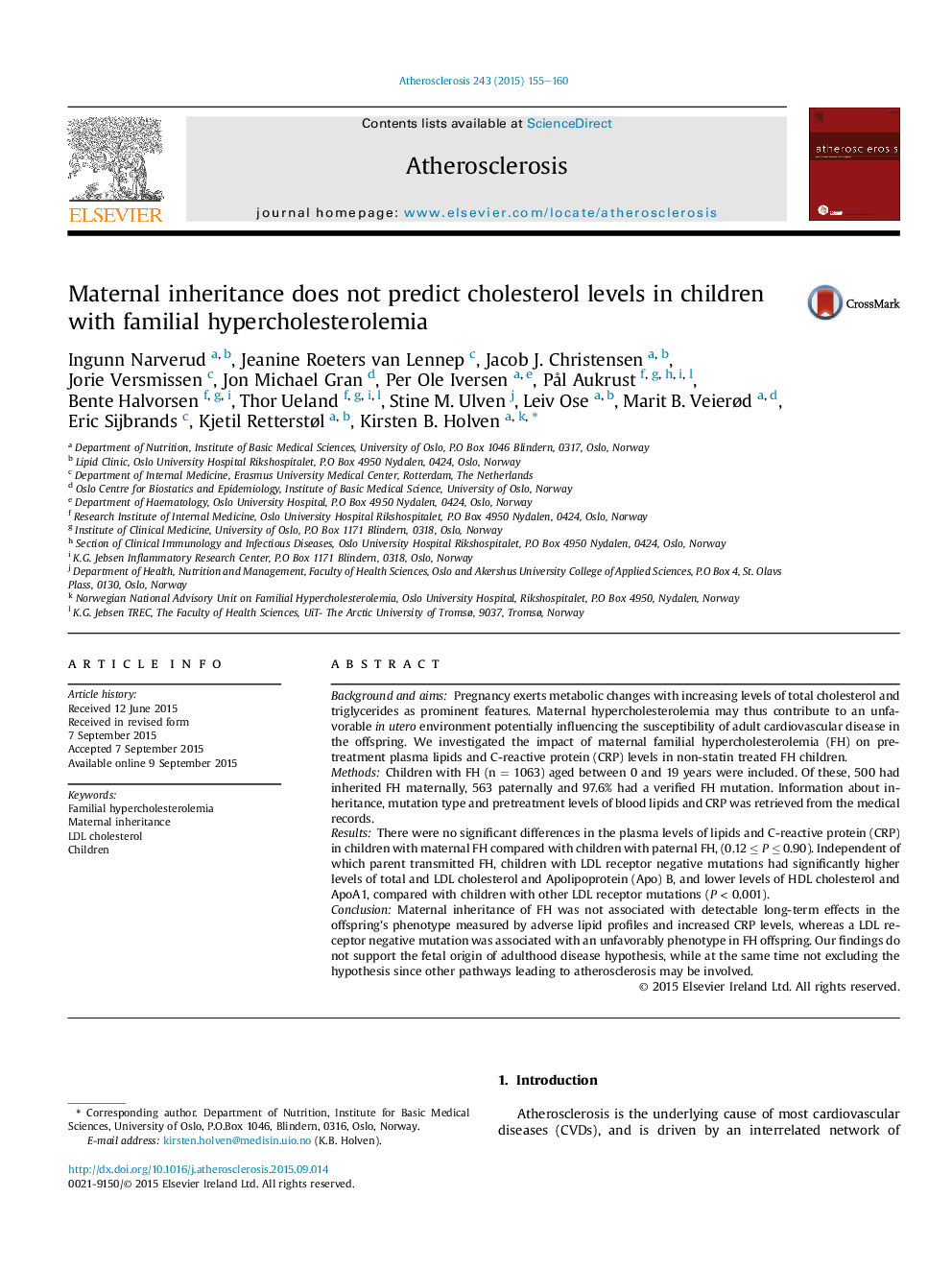| Article ID | Journal | Published Year | Pages | File Type |
|---|---|---|---|---|
| 5944215 | Atherosclerosis | 2015 | 6 Pages |
â¢Only a few studies have investigated the effect of maternal hypercholesterolemia on plasma lipids.â¢No differences in plasma levels of lipids in children with maternal compared to paternal FH.â¢No differences in CRP levels in children with maternal compared to paternal FH.â¢Children with LDL receptor negative mutations had higher total-and LDL cholesterol Maternal FH did not result in any detectable changes in offspring's lipid and CRP levels.â¢Future research with a wider spectrum of inflammatory markers is required.
Background and aimsPregnancy exerts metabolic changes with increasing levels of total cholesterol and triglycerides as prominent features. Maternal hypercholesterolemia may thus contribute to an unfavorable in utero environment potentially influencing the susceptibility of adult cardiovascular disease in the offspring. We investigated the impact of maternal familial hypercholesterolemia (FH) on pre-treatment plasma lipids and C-reactive protein (CRP) levels in non-statin treated FH children.MethodsChildren with FH (n = 1063) aged between 0 and 19 years were included. Of these, 500 had inherited FH maternally, 563 paternally and 97.6% had a verified FH mutation. Information about inheritance, mutation type and pretreatment levels of blood lipids and CRP was retrieved from the medical records.ResultsThere were no significant differences in the plasma levels of lipids and C-reactive protein (CRP) in children with maternal FH compared with children with paternal FH, (0.12 â¤Â P â¤Â 0.90). Independent of which parent transmitted FH, children with LDL receptor negative mutations had significantly higher levels of total and LDL cholesterol and Apolipoprotein (Apo) B, and lower levels of HDL cholesterol and ApoA1, compared with children with other LDL receptor mutations (P < 0.001).ConclusionMaternal inheritance of FH was not associated with detectable long-term effects in the offspring's phenotype measured by adverse lipid profiles and increased CRP levels, whereas a LDL receptor negative mutation was associated with an unfavorably phenotype in FH offspring. Our findings do not support the fetal origin of adulthood disease hypothesis, while at the same time not excluding the hypothesis since other pathways leading to atherosclerosis may be involved.
